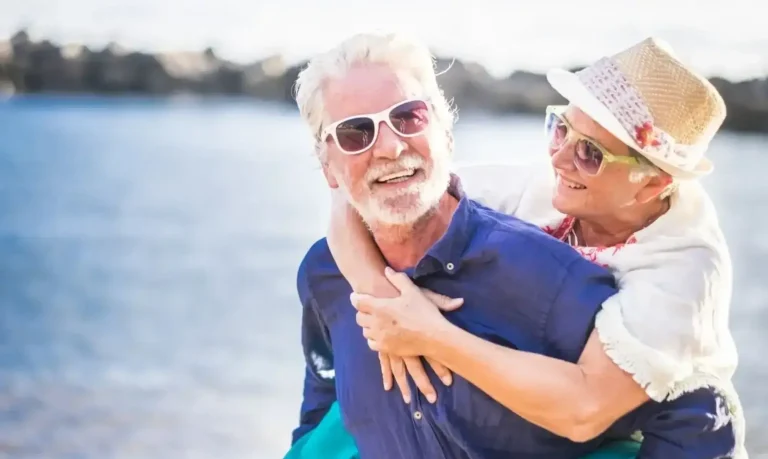A human being is made up of about 60% water. Women, due to the higher fat content in the body and usually lower muscle mass, store slightly less water in their bodies than men. Water is essential for life, it is a component of all living organisms. Proper hydration of the body is very important for maintaining the efficiency of organs and systems and for well-being. The human body is able to produce a small amount of water in metabolic processes – about 300 ml, the remaining part necessary for the proper occurrence of life processes must be constantly replenished.
Despite the fact that knowledge about the correct level of hydration of the body is widely known, many people still have a serious problem with regular fluid intake. The majority of fluids consumed are tea and coffee, which do not properly hydrate the body and can contribute to a deterioration in well-being, e.g. due to taking too much caffeine. With age, a decrease in the amount of fluids consumed is observed, which may be associated with a deterioration in well-being and changes in appearance.
Studies clearly indicate that Poles, regardless of age, have a problem with drinking the right amount of fluids. Hydration levels that are too low are particularly common among mature people.
What factors contribute to this? Physiological changes associated with the aging process reduce the amount of water in the body and reduce the feeling of thirst. In addition, the lifestyle of seniors is conducive to hydration levels that are too low. Over the last decades, it has changed a lot; currently, turning 60 does not mean retiring from professional or social activities, quite the opposite.
Modern seniors are very keen to take on additional activities – they are active in social clubs, do amateur sports, undertake charity or social activities, and actively work as volunteers. Very often grandparents take over some of the care of their grandchildren, but it is so hard to keep up with children! In the rush of everyday duties, when fulfilling commitments, taking care of children, and even dealing with everyday matters related to maintaining the home, it is easy for seniors to forget about themselves and neglect proper hydration.
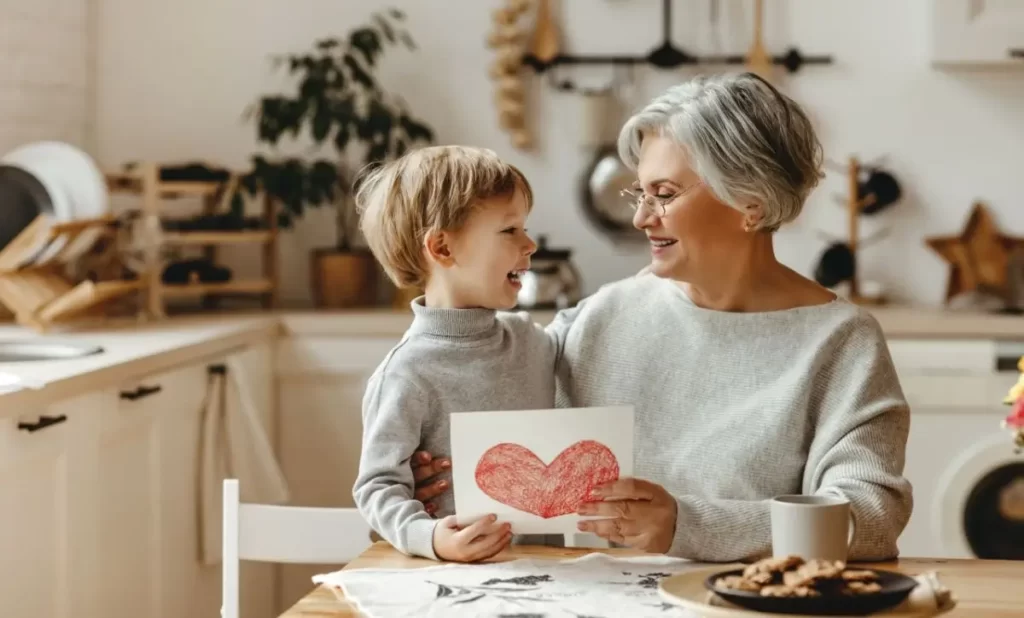
Fig. 1. Don’t forget about yourself when taking care of your loved ones.
The correct level of hydration is extremely important for people of all ages, including seniors. The elderly and children are a group that scientists cite as the most sensitive to a decrease in the amount of water, while at the same time the least willing to take it. Only a properly hydrated body can maintain the good condition of organs and systems, the ability to move and think. When facing many daily challenges, you must not forget about yourself.
How much water do you need to drink? Daily water requirement for an adult
The daily amount of water that an adult should provide to their body is variable and ranges from 25 to 35 ml per kilogram of body weight. Depending on individual variables and the environment in which a given person functions (the need for water is influenced not only by activity during the day, but also by air temperature, its humidity and the type of food that a given person most often eats), the exact supply may be different.
To precisely determine how much water you should supplement your diet with, it is worth following the guidelines of the European Food Safety Authority, which in 2010 recommended that women should drink 2,000 ml of water per day, and men a little more, i.e. 2,500 ml. The given values include food that we eat throughout the day, e.g. fruit, vegetables, soups, juices, purees, etc. However, you should be careful with overestimating the water content of food, it is estimated that water taken with food constitutes only about 20% of the daily requirement for fluids, the rest should be constantly replenished.
What are electrolytes?
Electrolytes are substances dissolved in fluids filling the tissues of living organisms. Their role is to maintain proper osmotic pressure and water management. Excessive loss of electrolytes (e.g. due to improper habits and lifestyle or intensive exercise) can lead to a deterioration in well-being and a decline in performance.
The group of substances generally called electrolytes includes:
- Potassium – helps in the proper functioning of the nervous system and muscles (including the heart muscle) and regulates proper blood pressure.
- Calcium – contributes to the physiological process of blood clotting, just as potassium helps in the proper functioning of muscle tissues and the nervous system. Calcium is one of the elements that support energy metabolism processes.
- Magnesium – magnesium maintains proper electrolyte balance, helps reduce the feeling of tiredness and fatigue that may accompany some seniors, especially professionally active ones.
Causes of increased demand for water in the elderly
Unfortunately, with age, the efficiency of the body and the processes that take place in it decrease. The aging body slowly slows down and reduces the intensity of work. As a result, the ability to regenerate decreases, the appearance of the skin changes, and unpleasant symptoms appear from the musculoskeletal system – back, joints, limbs. All these changes are also indirectly related to the level of hydration of the body.

Fig. 2. Physiological changes occur in the body as time passes, which affect your well-being.
It is estimated that the ability of the kidney glomeruli to filter urine decreases with age by about 30%. As a result, urine is not concentrated as much as before, and seniors excrete larger amounts of fluids, which they usually do not replenish.
Some seniors deliberately limit the amount of fluids they drink to reduce excretion. Why? Because they may experience discomfort related to urination. Sometimes seniors want to postpone the need to urinate for organizational reasons – because they plan to take care of the garden, go to take care of official matters or go shopping in the city, take care of their grandchildren and cannot take their eyes off them for even a second. Such behavior is very irresponsible and can significantly worsen the well-being of the person. Symptoms of improper hydration (too low) are felt quite quickly and can ruin the day and cause the family hours of fear and uncertainty about whether everything is okay with a loved one.
In seniors, the body’s ability to thermoregulate decreases, which is why you need to be especially careful during hot and muggy summer days.
A reduced feeling of thirst and the need to remember to take subsequent portions of fluids are also a significant cause affecting the low level of hydration in people over 60. The lack of awareness that such physiological changes occur in the body with age means that once they develop, it is difficult for a senior to notice them and implement habits into their behavior that will help to reduce the impact of this phenomenon on the body and make it easier to remember to hydrate regularly.
A very unpleasant phenomenon among seniors and at the same time a common cause of improper hydration in this group of people are mood disorders. Loneliness and lack of social activity can negatively affect well-being, which translates into a reluctance to consume fluids and food.
Swallowing problems are the last of the causes of poor hydration in the elderly that will be discussed in this article. Correction of dental cavities and changes in the microflora of the oral cavity can cause irritation and minor injuries, which in turn cause discomfort when drinking and eating.
Fortunately, they can now be prevented in a very simple way. Do not give up on smile correction, it is very important for your well-being, mental comfort, but also the convenience of eating meals. If you feel that the fillings or dentures do not fit perfectly and contribute to minor injuries in the oral cavity or discomfort, contact your dentist. The specialist will re-adjust the fillings and propose solutions that quickly and effectively relieve the discomfort associated with oral injuries that have already occurred.
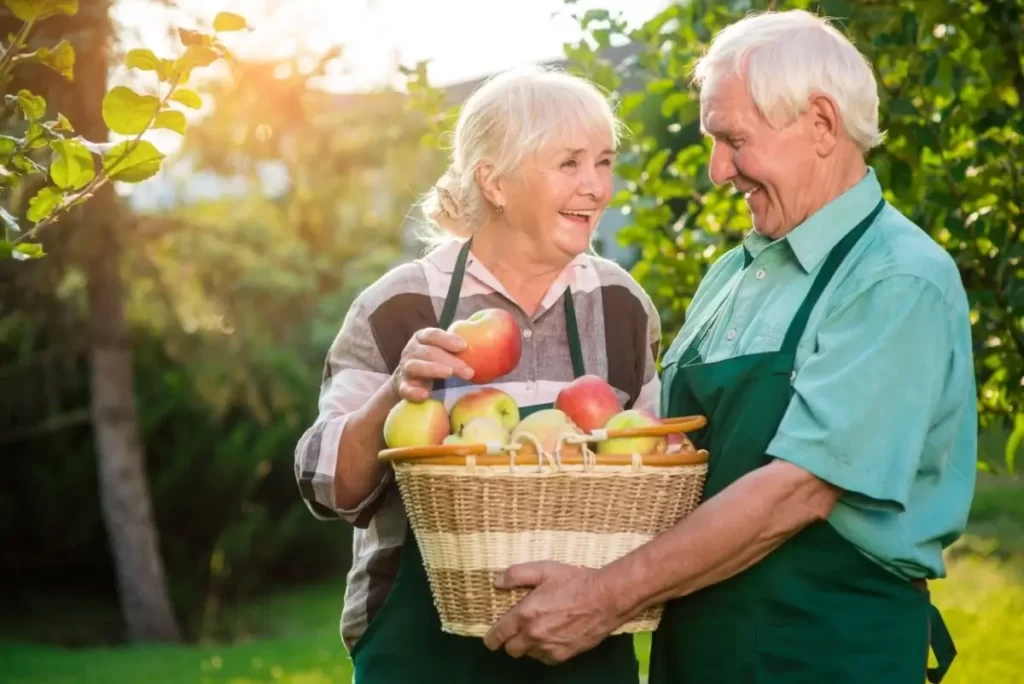
Fig. 3. Don’t give up fruit in your diet, they are an important source of fluids and vitamins.
Why do elderly people especially need hydration?
Symptoms of an abnormal level of fluids in the body can be very subtle and many people will find it difficult to register them, especially if they have been chronic for many weeks or months. Elderly people who are insufficiently hydrated may experience a general deterioration in well-being. Seniors feel that their energy level has dropped, they are less willing to engage in social initiatives. They feel that they have less strength, and everyday, ordinary duties are becoming more and more tiring for them and are becoming a big challenge.
Additionally, seniors may experience a feeling of fatigue, problems with concentration or emotional instability.
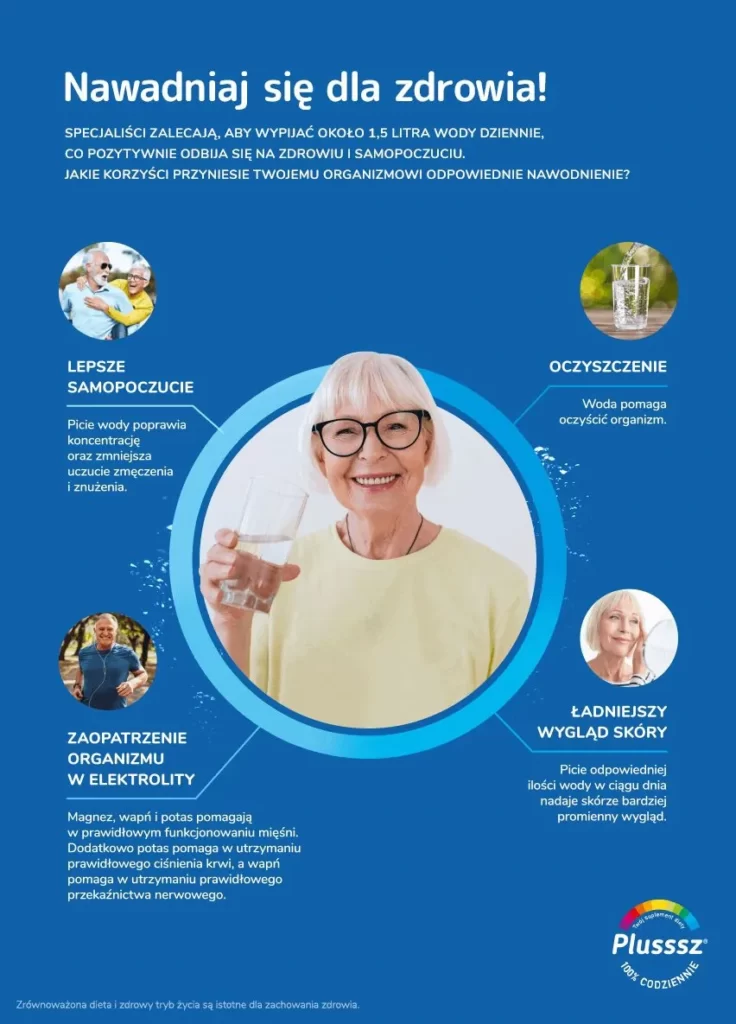
What should remind a senior to hydrate?
Incorrect hydration is related to physiological issues and the habits of seniors. With age, tissue hydration decreases, the skin loses collagen, sags and becomes dry. Seniors rarely complain of feeling thirsty, even in hot weather or after prolonged exertion they do not feel the need to replenish fluids. This is a physiological process that accompanies most people over the age of 60.
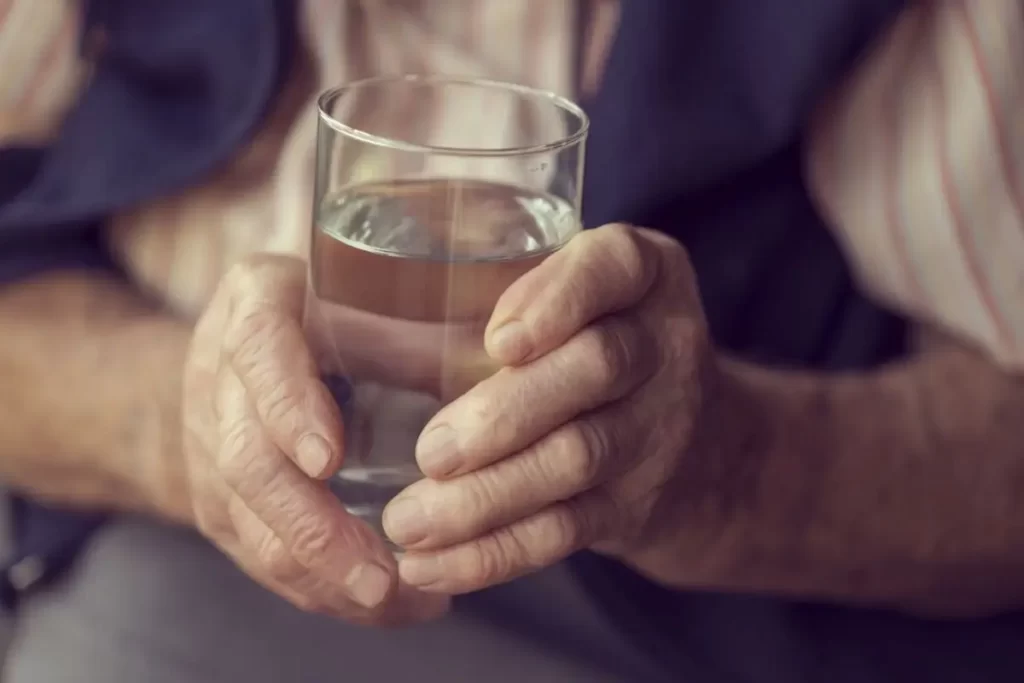
Fig. 4. As you age, you may notice a decrease in the feeling of thirst.
Additionally, the situation is worsened by the habits of the elderly and dietary restrictions that they often impose on themselves – without justification and without consulting a doctor or dietician. Foods consumed by the elderly may be poor in terms of electrolyte elements. Elderly people tend to gradually limit the consumption of fresh, raw vegetables and fruits, which are not only a source of water, but also elements important from the perspective of proper hydration, e.g. sodium or potassium.
How do diet and good habits support hydration in seniors?
In recent years, the way the food pyramid is presented has changed several times. What is it? Most people are familiar with it, if you do not yet follow the dietary recommendations that are communicated using it, we encourage you to familiarize yourself with the details of the guidelines.
The food pyramid is an idea that is supposed to illustrate universal dietary recommendations for all age groups and both sexes in a simple and understandable way. The pyramid divided into layers illustrates which foods from the basic groups (carbohydrate products, meat, vegetables, fruits, etc.) should be consumed in what proportions on a weekly or monthly basis.
For many years, the base of the pyramid contained complex carbohydrates – dark bread, cereals, pasta and groats, higher vegetables, legumes, and at the very top meats and simple sugars. The interpretation of a pyramid constructed in this way is simple – the largest share in the diet should be complex carbohydrates, the smallest simple sugars, which should be avoided or reached for occasionally and no more than a few times a month. For several years, the World Health Organization (WHO) has been changing its approach and the way of presenting recommendations. The base of the food pyramid includes water, followed by exercise. What does this mean and how to interpret the new recommendations?
Placing water at the base of the pyramid means that in the opinion of the World Health Organization it is an absolute foundation and taking care of the correct level of hydration is essential for proper functioning. There is no healthy diet and healthy nutrition without hydration and exercise. Thanks to this approach, it is possible to maintain a slim figure and at the same time provide the body with all the necessary nutrients, vitamins and minerals.
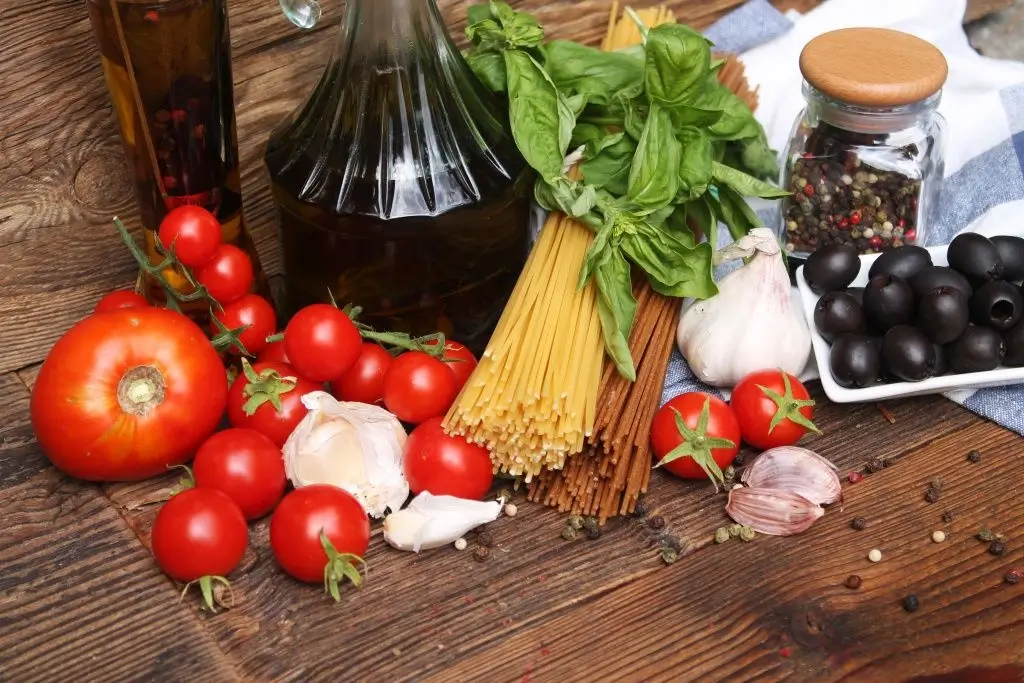
Fig. 5. A balanced diet consists of many types of food.
A diet based on home-cooked meals, balanced and tailored to the preferences of older people, while maintaining the right proportions is the basis for well-being and a longer healthy life.
Supporting proper hydration of older people
Depending on body weight and lifestyle, it is recommended to drink from a liter to one and a half liters of water a day. As previously mentioned, this amount consists of fluids taken with food (e.g. soups and raw fruit, vegetables) and beverages, but be careful – not all of them.
Strong infusions of black tea, coffee, sweetened and carbonated drinks do not hydrate the body properly. If you drink coffee and tea, try to limit their amount and try to drink no more than 1-2 cups of strong infusion a day. At the same time, remember to replenish water and, like the Turks or Italians, drink water with each cup of coffee.
The taste of water, or rather the lack of any taste in most cases, discourages many people from drinking water. How can you deal with this? Are there any alternatives? Of course! You can get out of any situation unscathed. A properly composed diet and healthy lifestyle should be tailored to a person’s preferences, so that they are associated with pleasure, not sacrifice and the need to force yourself to do anything. So how can you drink more and hydrate better?
If you want to introduce habits that will help you enjoy drinking water, try a few of the methods listed below:
- Place a container of water in a visible place – if you keep an eye on it most of the day, it will be easier for you to remember to drink regularly. Looking for a bottle, glass or waiting for a drink that has been prepared to reach the right temperature discourages drinking and can make you forget about it more often. If you are still working, make sure that water is also available in your workplace. A nice jug and glass to match will brighten up your workplace or be a decoration for your home, and you will enjoy using them. Do not store water in an open plastic bottle for many days, over time it changes its taste and properties.
- Try fruits and herbs – this method will work for people who do not like the neutral taste of water. You can throw mint leaves, rosemary, fruit pieces or a portion of freshly squeezed juice, e.g. from lemon or raspberries, into the jug. Remember that ready-made juices are often a source of additional sugar, the consumption of which is not recommended. If you grow fruit yourself, you can consider making homemade juice – without sugar. Pour such a concentrate into the water in small portions, until the appropriate intensity is achieved. If the juice you choose or make yourself does not contain sugar, you do not have to worry about additional calories. Raspberry, chokeberry or currant juice is a source of vitamins, microelements and antioxidants.
- Get to know technology – most mobile phones currently support mobile applications that can perform various functions. Some of them will remind you to drink regularly and when to eat. Install them yourself or ask a friend or someone close to you for help. You will see how easy it will be to remember to hydrate, and the new habit will quickly become second nature.
- Try hydration products – if you can’t convince yourself to drink only water, don’t trust ready-made juices and water additives, and feel that you need additional hydration, try electrolyte tablets. Electrolytes available in pharmacies usually come in the form of convenient effervescent tablets. Just throw them into a portion of water and after a few moments you can drink the ready drink. Electrolytes prepared in this way hydrate more effectively than water alone, because the drink also contains vitamins that are necessary for the proper metabolism of water in tissues and internal organs. Electrolytes are a good choice for people who don’t like the taste of water, they usually have a fruity, refreshing taste and for many people they can become a favorite drink. It is worth reaching for them whenever water alone may not be enough – in the heat, when you feel unwell, after exercise or when you particularly care about being in good shape.
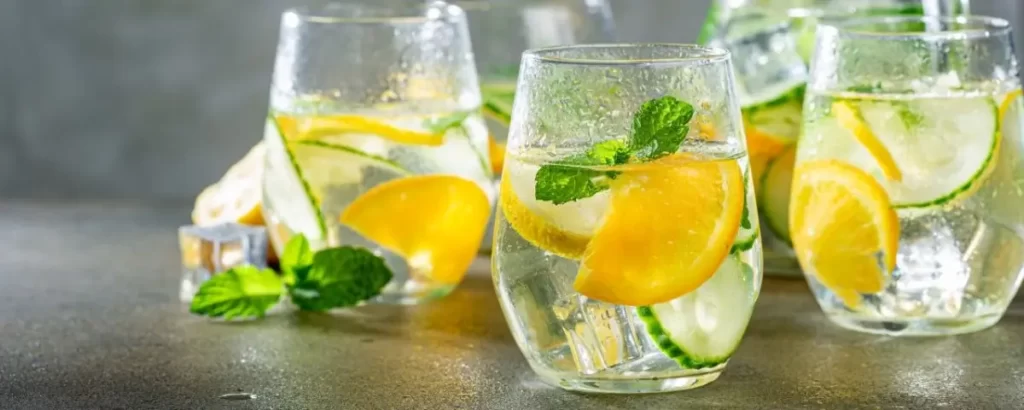
Fig. 6. Fruit in water will improve its taste.
Implementing the above methods does not guarantee immediate improvement in well-being and elimination of the feeling of tiredness or fatigue. Changes occur slowly and gradually, it is worth waiting a few days to develop a new habit, perhaps for years.
Proper habits in hot weather
Seniors are particularly vulnerable to a decrease in the level of hydration in hot weather. Because with age, thermoregulation mechanisms weaken, special efforts should be made to take care of yourself during periods of heat and not expose yourself to deterioration of well-being and dehydration.
How to take care of yourself or your loved ones during exceptionally hot days? Below we have collected a few rules that will help you survive them in good health and without risk:
- Avoid going out on days when the outside temperature is high – most official matters can be postponed to another day. If you need to go shopping, ask your loved ones or friends for help. Leaving the house on hot days and travelling by public transport is dangerous and can worsen your well-being.
- Dress appropriately for the weather – during hot weather, choose clothes made of light, airy fabrics. Cotton and other natural fibres (e.g. linen) are great. If you are going outside, make sure that the clothes you wear cover your arms and legs, this will prevent sunburn, which can be dangerous. Cover your head, preferably with a hat or a cap with a wide brim.
- Drink water, hydrate – ready-made electrolyte preparations are perfect during hot weather. Just dissolve an effervescent tablet in a portion of water, a ready-made mineral and vitamin preparation will not only hydrate your body, but also provide it with the necessary minerals. Sip water throughout the day, it is better to drink more often, but in smaller portions, thanks to which the water will be absorbed by the body and better hydrate the organs and tissues.
- Cover the windows, keep your home cool – even if you don’t plan on going outside, you could overheat. Air out the rooms early in the morning and in the evening, and at other times close and cover the windows, and you’ll keep your home pleasantly cool for longer. If the heat is hitting you particularly hard, you might consider installing a fan or air conditioning unit.
Regardless of the weather, be sensible and try not to take on more than you need to. A few days of rest during the summer won’t negatively affect your commitments and your current professional activity, taking care of your home or helping your loved ones.

Fig. 7. In hot weather, cover your head, choose breathable clothing and allow yourself to rest.
Hydration for seniors – answers to questions about hydration and senior diet
Proper hydration and designing a balanced diet can be difficult for people who have never had contact with the subject of dietetics before, and in the case of older people, the needs and possibilities of meeting them change with age. This can make them feel lost and need clarification on some issues. Below we have collected answers to the most frequently asked questions about the diet and hydration level of older people.
I don’t like the taste of water, how do I ensure the right amount of fluids?
Some people actually have a problem drinking water due to the lack of noticeable taste. Contrary to appearances, water has a taste and you can try to choose the one that suits you best. When experimenting with different types of water, pay attention to the content of microelements. Choose mineral waters unless your doctor or dietician has recommended otherwise. If, despite trying, you haven’t found a water that you like, try one of the ways to infuse it with flavor. Add fruit pieces or herb leaves to a jug of water. Refrain from adding sugar. If you like compote, try making it without added sugar and in a new flavor combination, such as rhubarb-strawberry or apple-mint.
I don’t feel thirsty, how do I know I should drink?
The weakening of the feeling of thirst is typical for the elderly. In order not to expose yourself to a significant loss of fluids, try to control the level of drinks and water you consume. If you find it difficult to remember to do this, try one of the methods we mentioned earlier in the text. Maybe a new jug in a visible place, a mobile app, a note on the fridge or a wristband with a short message will work for you?
Try all of these methods, but if you’re not doing so well and keep forgetting to drink, you should pay special attention to the quality of your fluids. Consider taking ready-made electrolyte preparations, their pleasant taste will encourage you to drink more often, and the minerals they contain will improve the level of tissue hydration.
I drink coffee and tea, is that enough?
Unfortunately, no. Strong infusions of black tea and coffee are not the best choice when it comes to maintaining a proper fluid intake. Try to drink a glass of water with every cup of coffee, limit strong tea and replace it with light fruit or herb infusions. Pay attention to whether the herbs you want to drink do not have an additional dehydrating effect or do not interact with the medications your doctor has recommended.
Electrolytes for the elderly – choose the best preparation
The multitude of rules and the number of changes you probably want to make after reading this text may overwhelm you a bit. Start slowly and don’t implement them all at once – if there are too many changes, you will take away the chance to properly ingrain them in your habits and adopt them permanently.
If you have a problem drinking the right amount of water, don’t worry. You can replace some of it with electrolyte preparations available at the pharmacy. Ready-made electrolytes hydrate better than water, contain additional vitamin and mineral components and make the water taken with food or in drinks have a chance to be metabolized and used by the tissues. Are you hesitant about which electrolyte to choose? Trust proven brands and choose a high-quality preparation that will not only work well, but also will not discourage you from drinking with its taste.
Bibliography:
- Suliga E., Health behaviors related to nutrition of adults and the elderly, “Hygeia Public Health” 2010, no. 45, vol. 1, pp. 44-48.
- Markiewicz R., Calcium and magnesium in the diets of elderly people from the Podlasie region, “Bromatologia i Chemistry Toxicologiczna” 2010, no. 42, vol. 3, pp. 629-635.
- Mziray M., Siepsiak M., Żuralska R., Modlińska A., Domagała P., Water as an important nutrient in the diet of the elderly, “Problemy Higieny i Epidemiologii” 2017, no. 98, vol. 2, pp. 118-124.
A balanced diet and a healthy lifestyle are important for maintaining health.
